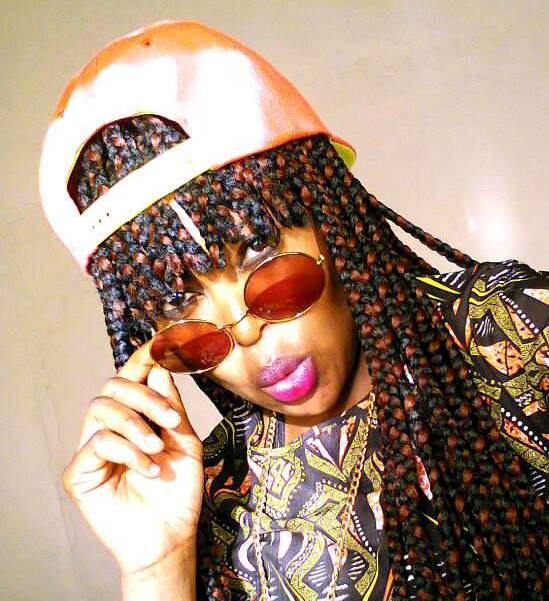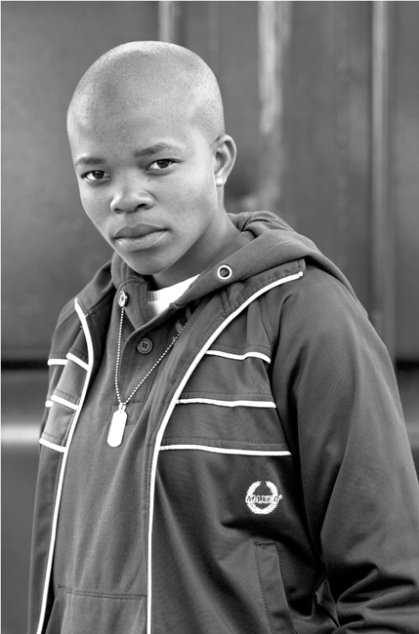As Transgender and Intersex (TIA) we have decided to respond to an article that appeared on the Inkanyiso website on the 13th of October 2013 titled “Frustrations of a transgender man”.
The reason for the response is because we felt that as a transgender and intersex organisation, we are clearly implicated in the article.
The article clearly expressed the challenges that are faced by most transgender people in South Africa, especially those that are based in townships and rural areas.
In this response we will try to make a few points clear about how the organisation works and explain the state of transgender health care in South Africa.
In early 2013, we conducted a Needs Assessment report from the six provinces that we serve in South Africa; Gauteng, North West, Limpopo, Mpumalanga, Kwa-Zulu Natal and the Free State province.
From the report we realized that 67% of our constituents are unemployed, that is quite a high number considering the fact that we have over 520 transgender and intersex constituents as an organisation.
These are people who need access to health care, assistance with their Identity documents or psycho-social support.
Because of the high unemployment rate, most of them are completely dependent on public health care; the problem becomes even bigger considering the fact that only two public hospitals in Gauteng can cater to some degree for the needs of the trans* population; Steve Biko Academic Hospital and Chris Hani Baragwanath Hospital, the only other hospital that has done great work in terms of trans* health care is Groote Schuur in Cape Town.
Unfortunately in terms of surgeries for transsexual patients, Steve Biko only takes up about four new state subsidised trans* patient per year and Baragwanath does between 6 to 8 state subsidised surgeries per year.
This means with all the people we have on database, only 10-12 actually receive surgeries per year as they cannot afford private health care.
We constantly refer our constituents to these two hospitals and have even started a close working relationship with Baragwanath, unfortunately the hospitals can take you in as a patient for a psychologist’s diagnosis and for a few sessions with the psychologist, but in most cases that’s the most they can do, as the waiting lists for seeing an endocrinologist or surgeon are usually very long at these hospitals.
Additionally the Groote Schuur Hospital (GSH) is committed to 4 surgeries per year, and with the huge amount of visibility created over the years about trans* in SA, the GSH waiting list is at this point 26 years long!
This is the bleak picture of trans* healthcare in South Africa, there are no hospitals in two thirds of the country that adequately cater for the needs of trans* patients, as a result most of our constituents usually travel monthly from their provinces to Gauteng in order to access some degree of healthcare, some of them have even migrated to Pretoria or Johannesburg for healthcare.
Trans* healthcare in this country is expensive, you lose so much in the pursuit of healthcare, you lose your money, sometimes you lose relationships with your family and friends and sometimes you lose your life while waiting for healthcare. If you really want to transition using the public health system, you must be prepared for long and difficult process, healthcare for transitioning will not come to you, you have to fight for it, you need patience and perseverance, that is why we have support groups in Pretoria, Johannesburg and Mpumalanga for trans* people, because we understand that this can be a very frustrating journey.
The problem with our community is that they almost don’t understand that as an organisation the best we can do is offer assistance to you by referring you to a hospital, tracking your case and intervening when the hospital does not treat you well and offering psycho-social support.
But we cannot guarantee that you will get the surgery you seek at the time that you want, this can be a very long process, and you need to work with us.
That is why when people ask for referral letter from us, we ask them to come to the office because we cannot give a referral letter that we have signed and clearly bears the letter head of the organisation to a person we have never met or interviewed.
If the constituent says they do not have the bus fare to come to us, sometimes we assist when we have the funding and sometimes we tell them they will come to us when they have enough money to do so or they can wait for the time when we have an outreach activity in their province.
This is a struggle that we all have had to undergo as trans* and intersex people form disadvantaged backgrounds. The Director of TIA, Tebogo Nkoana had to leave his family and friends and move to Cape Town as a 19 year old in order to get his transition.
He had to work once he got to Cape Town in order to meet his daily needs as his family couldn’t afford to send him money.
Our Advocacy coordinator had to move from the North West and move to Pretoria for health care.
We have all made sacrifices to get where we are, and we are still struggling with access to health care. This should not be the case in a democratic state, but unfortunately that is how things are at the moment and until the time when our health care system prioritises trans* and intersex health care.
We are going to need a whole lot of perseverance and unity.
The struggle for the right to healthcare for trans* persons is not a battle that we can fight alone. We need the trans* community to come on board.
This is not a struggle that TIA and Gender DynamiX can fight alone.
The biggest problem that we have at the moment is the lack of the trans* community’s interest in organising and owning their movement.
It is very common for trans* people to request assistance from us but when we need assistance from them in terms of organising or needing information through surveys very few of them actually take part.
All three of the trans* organisations in the country are actually very small in terms of staff numbers, as TIA we have only four permanent staff members and because of a lack in funding only two of the staff members are paid. As a result, we cannot afford to subsidise or fund anyone’s medical assistance when our own staff members can’t even afford to pay rent.
Trans* organisational funding is one of the biggest problems at the moment, most of us don’t even know if our organisations will still exist in the coming year as funding is very difficult to come by. Adding the total number of staff members at TIA and Gender DynamiX equals to 9 people. We cannot expect 9 people to lead and take charge of a trans* movement that includes thousands of trans* people.
We all need to own the movement and be the change we want to see in the world.
In order to serve the trans* and intersex people based in provinces outside of Gauteng, we conduct outreach activities. We visit these provinces with the intent of getting in touch with the trans* and intersex people in these provinces, sensitising service providers and collecting data that can be used for advocacy. In fact, in the coming two months, we will be conducting outreach activities in the North West, Mpumalanga and Limpopo in collaboration with Gender DynamiX.
We ask the trans* and intersex community to attend these activities and events so that we can figure out how to organise and bring about a change in our country in terms of transgender and intersex human rights.
In most cases when we organise these activities only a few trans* people attend even though we do our best to inform them a long time in advance.
We cannot reiterate any further that this is a struggle.
A struggle we will all have to take part in, we might not see the results immediately but we will definitely see them in the future.
The trans* movement has made great strides in the past few years considering how small it is.
It is time that we united and forced government to prioritise trans* health care because regardless of gender identity or expression, we are also citizens of this country who deserve health care and full human rights like anyone else.
Aluta Continua.
Related articles
and
2013 Aug. 9: Transgender youth suicide in Johannesburg
and
2013 Oct. 4: I sensed something was wrong









 Sorita is a very social individual who enjoys interacting with people in general.
Sorita is a very social individual who enjoys interacting with people in general.



